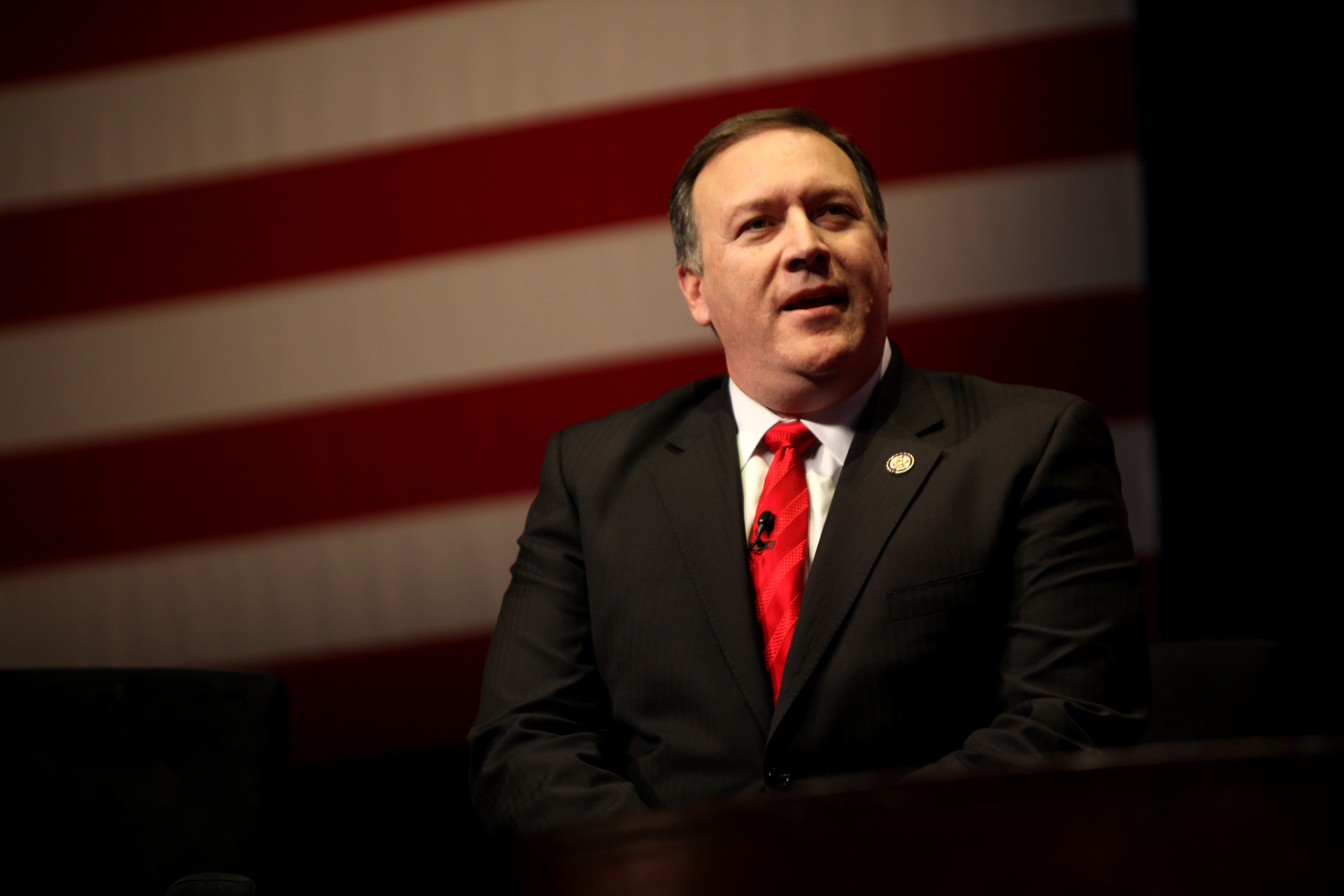
Pompeo’s Obstructionism Won’t Work
Pompeo’s obstructionist signaling didn’t prevent Kurt Volker from testifying in a closed-door meeting with House investigators.

From personal attorney Rudy Giuliani’s brazen cable-TV admissions to the summary phone-call transcript that wasn’t exactly summarized in the president’s favor, President Donald Trump’s own involvement in the scheme to get foreign governments to investigate his political rivals is well-established. (Just in case there were any doubt, on Thursday Trump publicly called on China to investigate former Vice President Joe Biden and his son.)
But big names continue to surface in the churn of news surrounding the impeachment inquiry into Trump. A Washington Post report on Wednesday night said Trump had involved Vice President Mike Pence in exerting pressure on Ukraine. Hours before, Secretary of State Mike Pompeo confirmed that he had been on the call with Ukrainian President Volodymyr Zelensky that is at the heart of the House impeachment inquiry. Pompeo made the admission at a news conference in Italy, where Attorney General William Barr last week met with Italian intelligence officials.
But Pompeo’s admission should not be mistaken for a sign of conciliation — in fact, earlier this week, Pompeo sent a combative letter to the three congressional committee chairmen who have issued subpoenas for documents and testimony from multiple senior State Department officials. In the letter, Pompeo indicated that the administration would not comply with the requests, accusing the chairmen of attempting to “intimidate, bully, and treat improperly the distinguished professionals of the Department of State, including several career Foreign Service Officers.”
As American Oversight’s executive director Austin Evers noted, this response from Pompeo to constitutionally essential legislative branch oversight marks a continuation of the administration’s across-the-board refusal to cooperate with congressional investigations or make the necessary compromises of the traditional “accommodations process.” Writes Evers:
There is no acknowledgment of Congress’ legitimate interests, no pledge to cooperate, no olive branch of compromise or negotiation. It is an aggressive assertion of technical and atmospheric objections that the House committees have fairly interpreted as a total rejection of their inquiry. … He appears to be taking a page out of Trump’s playbook — refusing to compromise in any way, refusing to recognize the fundamental system of checks and balances, and placing himself and his agency above the law.
In a joint statement, the House chairmen responded to Pompeo’s letter with a warning that such a refusal to cooperate with congressional investigations could be considered “evidence of obstruction of the impeachment inquiry” — an action that itself could be grounds for impeachment.
Pompeo’s uncooperative posture isn’t just a threat to checks and balances — many observers also noted the irony of both the secretary’s approach to congressional oversight and his purported concern for career officials at the State Department. During his tenure in Congress, Pompeo sat on the Select Committee on Benghazi, where his demands for State Department cooperation with the committee’s investigation evinced a markedly different approach to executive branch oversight.
Of course, Pompeo’s obstructionist signaling didn’t prevent Kurt Volker, the U.S. special representative to Ukraine who resigned last week, from testifying in a closed-door meeting with House investigators. According to the Washington Post, Volker said that he had warned Giuliani that Giuliani’s sources for information about the Bidens were unreliable and had cautioned the Ukrainians against getting involved.
Additionally, American Oversight has an active lawsuit for State Department records, and on Friday morning asked a federal judge to issue a preliminary injunction to compel the department to immediately begin releasing the requested documents. “It’s hard to imagine how the public’s need for the truth about Ukraine could be any more urgent,” said Evers. The lawsuit seeks communications with or about Giuliani and his efforts, and about the former U.S. ambassador to Ukraine, Marie Yovanovitch, who was recalled in May and was mentioned by Trump on his July 25 call with Zelensky. Yesterday, the Wall Street Journal reported that Trump ordered her recall after complaints from Giuliani and other allies outside the administration.
On Thursday, NBC’s Richard Engel reported that former intelligence officials say that Pompeo was prone to “fits of ‘anger’” while serving as CIA chief. According to Engel, “Pompeo was a bully to subordinates, driving some to quit or seek new assignments. ‘Throwing binders was a popular sport,’ said one.” American Oversight has filed multiple Freedom of Information Act requests for any records of complaints filed by CIA or State Department employees concerning Pompeo’s conduct — like the secretary of state, we’re also concerned about attempts to bully State Department officials.